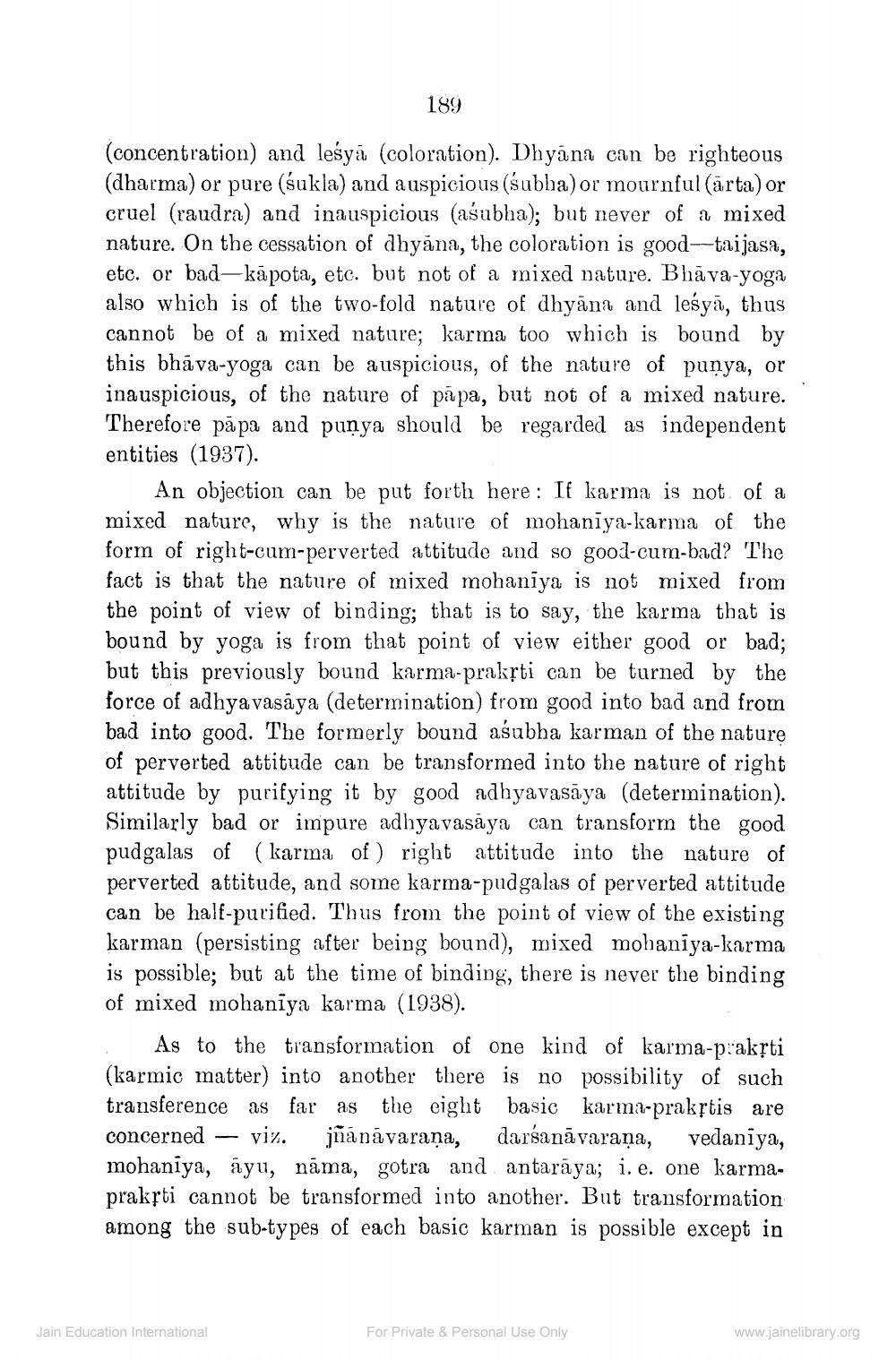________________
189
(concentration) and leśyà (coloration). Dhyāna can be righteous (dharma) or pure (śukla) and auspicious (śubha) or mournful (ärta) or cruel (raudra) and inauspicious (aśubha); but never of a mixed nature. On the cessation of dhyāna, the coloration is good--taijasa, etc. or bad-kāpota, etc. but not of a mixed nature. Bhāva-yoga also which is of the two-fold nature of dhyāna and leśyā, thus cannot be of a mixed nature; karma too which is bound by this bhāva-yoga can be auspicious, of the nature of punya, or inauspicious, of the nature of pāpa, but not of a mixed nature. Therefore pāpa and punya should be regarded as independent entities (1937).
An objection can be put forth here: If karma is not of a mixed nature, why is the nature of mohanīya-karma of the form of right-cum-perverted attitude and so good-cum-bad? The fact is that the nature of mixed mohanīya is not mixed from the point of view of binding; that is to say, the karma that is bound by yoga is from that point of view either good or bad; but this previously bound karma-prakrti can be turned by the force of adhyavasaya (determination) from good into bad and from bad into good. The formerly bound aśubha karman of the nature of perverted attitude can be transformed into the nature of right attitude by purifying it by good adhyavasāya (determination). Similarly bad or impure adhyavasāya can transform the good pudgalas of (karma of) right attitude into the nature of perverted attitude, and some karma-pudgalas of perverted attitude can be half-purified. Thus from the point of view of the existing karman (persisting after being bound), mixed mohanīya-karma is possible; but at the time of binding, there is never the binding of mixed mohanīya karma (1938).
As to the transformation of one kind of karma-p:akşti (karmic matter) into another there is no possibility of such transference as far as the eight basic karma-prakstis are concerned – viz. jñā nāvarana, darśanā varaņa, vedaniya, mohaniya, āyu, nāma, gotra and antarāya; i.e. one karmapraksti cannot be transformed into another. But transformation among the sub-types of each basic karman is possible except in
Jain Education International
For Private & Personal Use Only
www.jainelibrary.org




